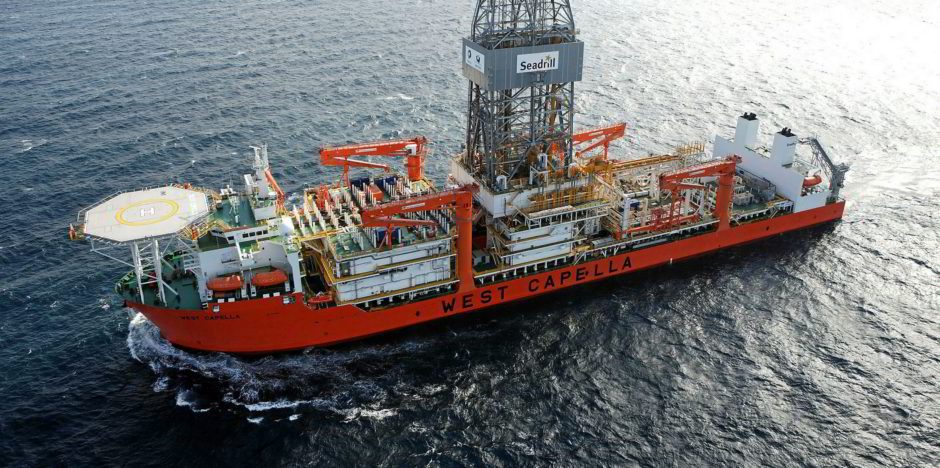
UK-listed Harbour Energy (LON:HBR) has announced initial success at its play-opening deepwater Timpan-1 exploration well offshore Indonesia in the North Sumatra basin. Significantly, the initial result bodes well for the frontier area and could open up more petroleum plays, which are thought to be gas prone.
The operator said it has completed the drilling of the Timpan-1 exploration well, located 150 kilometres offshore Indonesia, in a water depth of 4,245 feet, with the West Capella drillship, at its Andaman II production-sharing contract (PSC)
“The well was drilled to a total vertical depth of 13,818 feet subsea. The well hit a 390 foot gas column in a high net-to-gross, fine-grained sandstone reservoir with associated permeability of 1-10 mD. A full data acquisition programme has been completed including wireline logging, 240 feet of core recovered and a drill stem test,” Harbour said in a statement.
“The well flowed on test at 27 mmscfd of gas and 1,884 bopd of associated 58 degrees API condensate through a 56/64 inch choke. While the well has encountered a material gas accumulation, further work will be required to establish commerciality and the full potential of this play across the licence,” said the company.
Gary Selbie, President Director of Harbour in Indonesia, said, “we are encouraged by the result of this play-opening exploration well. We look forward to working with our partners and the Government of Indonesia to determine the potential for commercialisation of this important discovery.”
Mubadala Petroleum, a parter in the Timpan-1 well, said the results are especially important as an indication that the adjacent fields the Andaman I and South Andaman, which it operates with 80% interest, will also include material under-explored resources, reinforcing the potential to help meet energy demand in the region and align with its expansion plans in Indonesia.
Potential For Big Discoveries
The region, which is largely undrilled, offers the potential for big gas discoveries. The Timpan play opening well was targeting 300 million barrels of oil equivalent and was expected to be gas prone, Harbour said last December. The gross play potential is up to 12 trillion cubic feet and 400 million barrels of condensate.
Significantly, the company has already identified potential commercialisation paths with first gas eyed by 2026, as well as options for carbon capture and storage (CCS).
Premier Oil, now a Harbour company, holds a 40% operated interest at the Andaman II Block. It said it has a strong supportive partnership with BP (LON:BP) and Mubadala, both partners in the PSC.
“Success at Timpan will de-risk the other prospects from the block. One of the significant factors behind the commerciality of these finds would be where the produced gas is marketed,” said Prateek Pandey, vice president analysis at Rystad Energy.
Repsol and Petronas are also drilling the much-anticipated Rencong-1X exploration well in the North Sumatra basin. The probe is targeting potential giant gas pockets in the Andaman III exploration Block in waters 1500 meters deep.
“The success from these blocks could open up many petroleum plays in the deeper sections, which are estimated to hold a majority of the gas resources in the basin. A commercial discovery would also pave the way for more E&P operators to explore the relatively untouched deeper plays in the country that has so far been characterised by discoveries made primarily in the shallow waters and onshore plays,” noted Pandey.
Indonesia’s upstream regulator SKK Migas said it will encourage Harbour Energy to drill in other structures in the Andaman block that have a number of similar structures. “I have a report that Premier Oil will focus on structures in the western area that have the same play as the current discovery. This is encouraging news, and we are optimistic that in the future oil and gas reserves will be found in this block,” said deputy for planning at SKK Migas Benny Lubiantara.
“Along with the discussion of work, program & budget (WPnB) in 2023, SKK Migas will encourage Premier Oil to reinvest in this block, so that discoveries can be found in the future,” he said.
